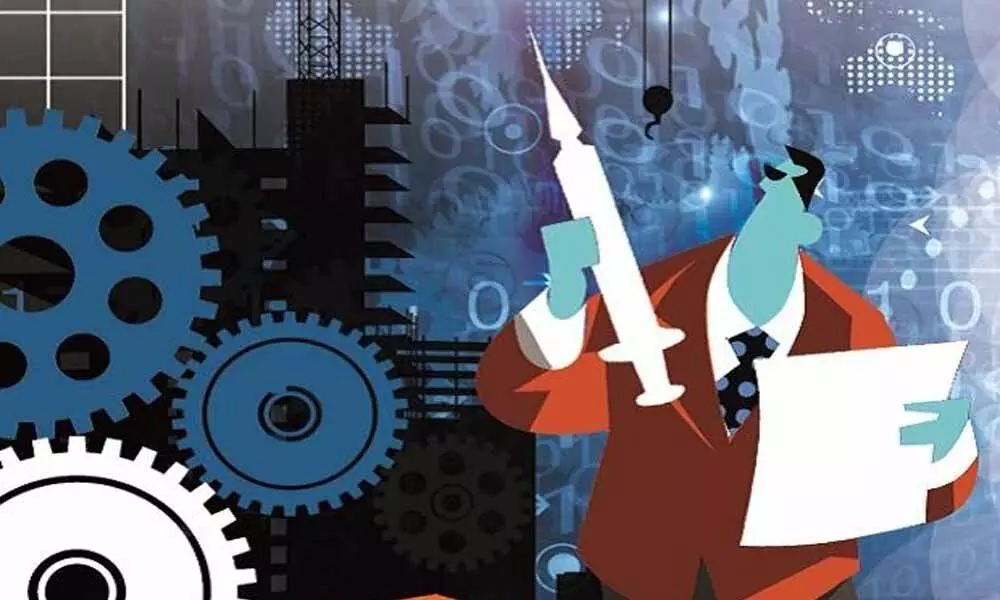Vaccine rollout adding momentum to exhibitions biz recovery
The sixth ever Global Exhibitions Day, which took place on 2 June 2021, spread the message that “exhibitions are the fastest of fast tracks to economic recovery” across the globe
image for illustrative purpose

The sixth ever Global Exhibitions Day, which took place on 2 June 2021, spread the message that "exhibitions are the fastest of fast tracks to economic recovery" across the globe. GED 2021 demonstrated the unity of the industry and proved that exhibitions create platforms for growth and recovery, whilst also instilling confidence in others to participate in organised events that prioritise safety and success in equal measure.
It's clear that 2021 is a pivotal year for the global exhibition industry. Exhibitions generate €493 billion ($551 billion) in business sales each year. In addition, visitors and exhibitor expenses generate a total of €299 billion ($334 billion) across the exhibition industry value chain (organisers, venues and service providers) and in tourism-related activities (accommodation, food and travel).
The rollout of the vaccine is making it possible to reconnect again on the show floor. Markets are starting to reopen around the world and events are taking place again in Europe, the United States and Asia. The industry is ready to be better than ever!
From videos to meetings, from webinars to hybrid events, from webcasts to social campaigns and virtual contests, and more, people and organisations from around 110 countries/regions participated in GED 2021.
The global reach online is at the same level as in previous years (final figures detailing the online reach will be available in the GED documentation in a few weeks). Over the course of the GED 2021 campaign, we saw a real appetite across the industry to meet again, as people participated live webinars and hybrid events for GED, while many more activities celebrating the people and power of exhibitions took place throughout the industry, leading up to and on the day.
The permanent lockdown for the German exhibition industry has massive consequences for the entire economy: according to calculations by AUMA - Association of the German Trade Fair Industry based on an Info study, cancellations of exhibitions due to Corona measures have so far led to an overall economic loss of 40 billion Euros. With the exception of September and October 2020, no fairs have been allowed to take place since March 2020 and the second quarter of 2021 is also likely to be cancelled almost completely.
However, in recent days some federal states such as Baden-Württemberg, Bavaria, Hamburg, Lower Saxony and North Rhine-Westphalia have opened up perspectives for a new start of exhibitions, which are dependent on certain incidence rates.
According to the organisers' plans, around 380 exhibitions were to be held in Germany in 2021. So far, around 220 exhibitions have been cancelled or postponed to 2022 due to the uncertain general conditions. In many cases, the trade fair organisers have developed substitute formats, especially digital events with company presentations, interaction opportunities and digital congress programmes. So far, around 55 digital events have taken place.
In the meantime, the majority of the federal states have formulated concrete perspectives for a trade fair restart, which are dependent on falling below certain incidence values. These are important first steps on the way out of the trade fair lockdown. Because the economy needs exhibitions: they are excellently suited to win new customers, to make innovations tangible with all the senses and thus to present them convincingly.
Exhibitions, commonly referred to as trade shows or fairs, have a simple purpose – bringing industries together to build community and create supply chain opportunities. But the industry itself is not a simple one at all: with over €493 ($551) billion in business sales for attendees, exhibitions have an incredible impact on our global economy.
In addition, expenses of visitors and exhibitors generate a total impact of €299 ($334) billion for both the value chain of the exhibition industry (organisers, venues and service providers) and the tourism related activities (accommodation, food and travel).
Trade shows have developed into far more than booths displaying product - they have become marketplaces amplified by educational opportunities, innovation launches, and data-driven qualified lead retrieval opportunities, supported by social networking activities that unite valuable digital progress with the now-yearned-for magic of interpersonal connection. Last year, many of the 33,000 exhibitions held worldwide transitioned to digital solutions which leveraged best-in-class technology to create those critical supply chain connections.

